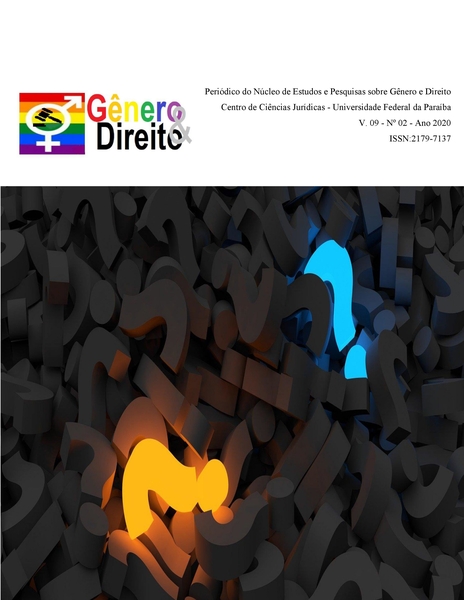THE POSITION OF JUDICIAL OVERSIGHT OF JUDICIAL INDEPENDENCE IN CONTEMPORARY LEGAL SYSTEMS
DOI:
https://doi.org/10.22478/ufpb.2179-7137.2020v9n2.50827Palavras-chave:
Judicial independence, separation of powers, judicial oversightResumo
In the political systems of nations, independence from the political pressure exerted by government officials and legislators guarantees the impartiality of judges. Thus, the power of judges to review public law and to violate the constitution by them acts as a fundamental obstacle to the possible abuse of power by the state. This power requires the courts to be independent and able to make their decisions based on the law. Administrative and institutional independence of the judiciary has never been a matter of purpose and has not been an inherent matter, but has been a means of securing the independence of the judge. Because the mere organizational and organizational independence of the judiciary is as valid as the independence of the legislature and the executive. The emphasis, therefore, on judicial independence in this sense must, to some extent, be that the balance of power is maintained. Just as judges in the United States and England are elected by political bodies such as the President and the Senate, there must be a way for the judiciary to maintain the balance of power, which is nothing but judicial oversight
Downloads
Referências
Akhundi, Mahmoud, Unauthorized Judge, Ettela'at daily, November 18 and 25, 1995 and Thursday, December 1995.
Akhundi, Mahmood; The Criminal Procedure Code, Tehran, Printing and Publishing Organization, 2009, Fourteenth Edition, Volume I.
Relaxation, Prophet, Thought: Legal Pathology: Independence of Judge and Judiciary, Lawyer, Bahman & Esfand 2001, No. 9, p. 18.
Mr Tawak, The Principles and the Nature of Judicial Oversight of Government Acts: A Comparative Study of the Countries of France, England and the United States, Journal of Legal Research, Winter 2007, no. 1, pages 125-192.
Aghaei Togh, Moslem, "Investigating and Evaluating the Origins of the Legal System Theory", Journal of Fundamental Rights, No. 7-6, 2006.
Wat Jones, Gods of Political Thought, translated by Ali Ramin, Amir Kabir Publishing Institute, 1979.
Zarei, Mohammad Hossein, "Good Governance, Sovereignty and Governance in Iran", Journal of Legal Research, No. 40, Fall-Winter 2004, pp. 202-155.
Zarei, Mohammad Hussein, Malmiri Center, Ahmad, The Concept and Principles of Judicial Control with Emphasis on the United States Legal System, Journal of Legal Research, Fall and Winter 2005, No. 42, pp. 149 to 198.
Fawadi, Siavash, on the Independence of the Judiciary or Cooperation with the Judiciary on Attitude to the Judiciary, Bar Association Journal, Fall and Winter 2008, Nos. 202 and 203.
Judge, Abu al-Fazl, Fundamental Rights and Political Institutions, Volume I, Tehran University Press, 1991.
Good Faith, Mohammad Reza, A Critique of Federalism, Tehran: Shiraz, 1998.
Madani, Seyyed Jalaluddin, The Fundamental Rights and Political Institutions of the Islamic Republic of Iran, Associated Press, 1991.
Mehrpour, The Judges' Stand Up for Independence, the subject of Article 164 of the Constitution, Journal of Judgment, December and December 2010 - No. 67, p. 39.
Kelly, John Morris, A Brief History of Legal Theory in the West, Translated by Mohammad Rasekh, Tehran: A New Design, 2003
Hashemi, Seyyed Mohammad, Human Rights and Fundamental Freedoms, Publication No. 2005.
Rehnquist, W. "Remarks of the chief justice, Washington college of law, continental celebration plenary academic panel": the future of the federal courts. (speech).(1996) .
Aranson, P.H. " Judical Review ", in Newman, P. (ed) , The Palgrave Dictionary of Economics and Law, Vol. 2, (London: Macmillian Refrence Limited,1998) .
H.W.R. Wade and L.F. Forsyth, Administrative Law,( Oxford: Clarendon Press,1994).
Barendt, E. An Introduction to Constitutional Law,( Oxford: Oxford University Press,1998).
Elliott, C. and Quinn, F. English Legal System, (London:Longman,2000) , pp. 443-438;
Le Sueur, A. Public Law, (London:Longman,1997), pp. 705-680; Carrol, A. Condtitutional & Administrative Law,( Edinburg:Pitman Publishing,1998), Part. 5.
Holemes.S. "Costitutionalism",in Lipset, S.M. ( ed.) , The Encyclopedia of Democracy,( London:Rutledge, 1995).
Dworkin ,R. " Introduction ;The Moral Reading and the Majoritarian Prenise " , in Freedom's Law,( Oxford: Oxford University Press,1996).
Robert A.Goldwin.R.A kaufman.A(eds)(1986).» Enterprise Institute for Policy Reesearch,p.ix Separation of Powers,Does lt Still Work?,WashingtonAmerican Cambridge University Press,p.82 Montesquieu.C(1989),The Spirit of Laws,Cambridge:
Yale law Journal,p.p.502-505 Bilder.M.S(2006),The Corporate Origins of Judicial Review
Bilder.M.S(2007)Why We Have Judicial Review,Yale Law Journal,p.p.215-216P
Dicey.A.V(1897),An introduction To Study of The Law of The Constitution, London:Macmillan,p.323.
Dicey, A. V. An Introduction to the Law of the Constitution, Published in1885, 10 th edn. edited byWade, E. C .S, (1959)

